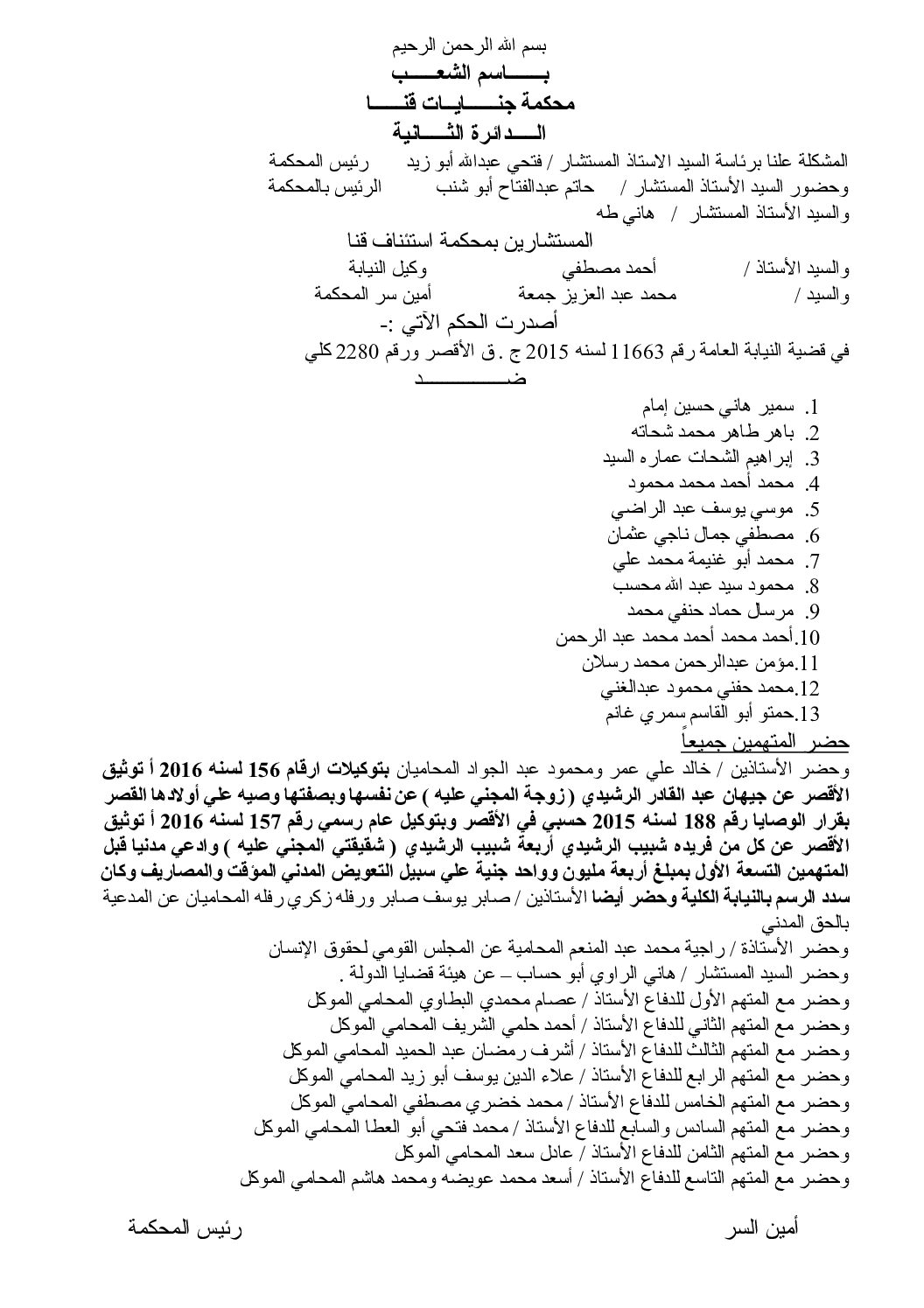Environment Justice|Rights Organizations Welcome Decision to Prevent Lafarge from Using Coal
Environmental and Rights Organizations Welcome Measures by the Environment Ministry to Prevent Lafarge Factory from Using Coal
Organizations Calls for an Energy Policy which Protects Health and the Environment
The undersigned associations and non-governmental organizations welcomed the decision taken by Dr. Laila Iskandar, Minister of State for Environmental Affairs, against the Lafarge cement company in Egypt concerning actions undertaken by the company to begin using coal as an alternative fuel to gas and fuel oil. The actions had also taken place without environmental approval and in violation of the law.
On 2 February 2014, the Environment Ministry issued a statement announcing that the minister had asked from officials in Suez governorate to take necessary measures related to installations works, remove all violations, and settle the legal status of Lafarge Cements Egypt. The statement indicated that an inspection of the company’s site on 25/12/2013 revealed the presence of large quantities of coal alongside construction works related to five coal storage units. This was a repeat of a previous violation discovered on 9/10/2010. The statement also indicated that the works were undertaken without the prior approval of the environment ministry, although such an approval was a mandatory requirement according to Law No.4 of 1994 and its applicable regulations.
Lafarge Cements Egypt, part of the international company Lafarge, is one of the largest producers of cement in Egypt. The energy-intensive cement industry had witnessed a large influx of foreign investments in the past decades, amounting to around 80% of the total annual output of cement in the country. The huge subsidies to fuel and electricity provided by previous governmental policies were the main reason for the appeal. However, it was an unprecedented waste of the limited resources this country has in this regard.
On several previous occasions, Lafarge had declared the need to shift to coal to address the decrease in the quantities of gas available under the current energy crisis. This is despite the fact that the profits made by the owners of the cement industry in Egypt exceeded those in the rest of the world. Some studies estimate that profits reached almost 40% and expect this profit margin to remain high even if subsidies on gas and electricity are lifted.
It should be mentioned that several health and environmental organizations had expressed concerns about the direction taken by some ministers and industrialists to use coal as an alternative because of its cheap price. The organizations believe that this decision would only benefit a small number of investors, who seek to maximize their profits without taking economic, health, and environmental losses into consideration, which will turn into a burden on current and future generations. The organizations stressed that coal causes extreme pollution to the environment and its use carries severe health risks, which will multiply the pollution load already faced by major cities, in general, and areas surrounding cement plants in particular.
While the organizations welcome the decision of the environment ministry, they emphasize that the Suez governor should take all necessary measures against Lafarge. They also call on the environment ministry to activate and strengthen the monitoring and control of factories’ compliance with the law, especially cement factories, as recent information maintains that Misr Cement Company in Qena and Suez Cement Company, in addition to some factories in Ain el-Sokhna are beginning implement similar actions in preparation for the use of coal.
In particular, the undersigned organizations emphasize that the Egyptian Supreme Council of Energy needs to create an energy strategy, based on the rationalizing the use and exploitation of renewable resources, which are Egypt’s real energy wealth. The Council should not accept hasty solutions without taking into account long term consequences, especially since allowing the use of coal would have serious economic, health, and environmental repercussions. It should seek to reform and mitigate the outcomes of inappropriate past policies, which have wasted Egypt’s resources and polluted its environment and continue to do so.
Signatory Organizations:
- Egyptian Initiative for Personal Rights (EIPR)
- Egyptian Center for Economic and Social Rights (ECESR)
- Egyptians Against Coal Campaign
- 350 Campaign
- Association for Health and Environmental Development (AHED)
- Organization for the Protection of the Environment of the Red Sea

